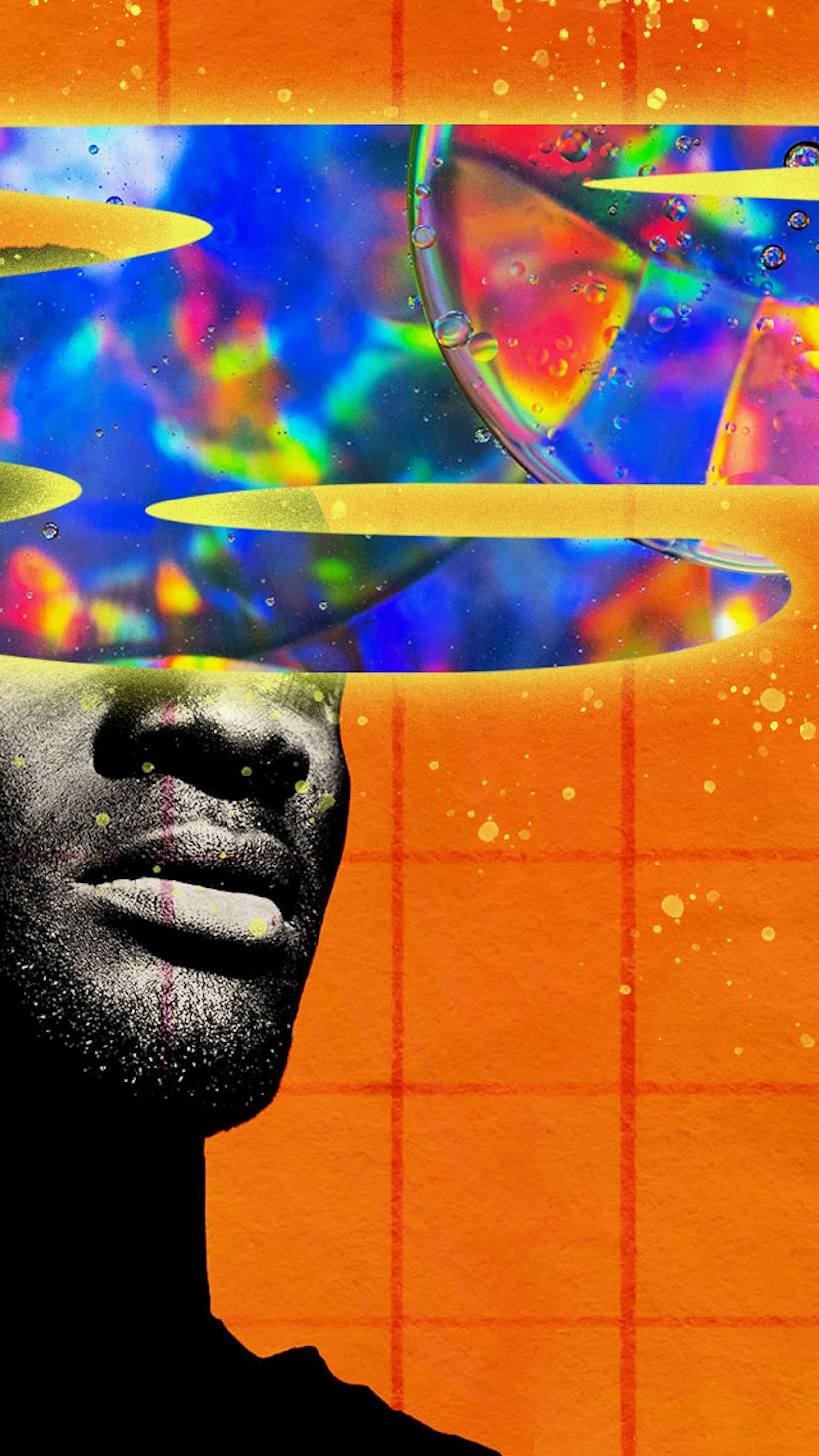Can the vagus nerve help us cope with trauma?
Stimulating this complex nerve can be key to healing. Experts explain how.

The vagus nerve is getting a lot of attention lately, as recent research suggests that it plays an important role in our trauma responses and in moderating inflammation in the body. Given the fact that we’ve all been through a recent collective traumatic experience, courtesy of the COVID pandemic, it seems more important than ever to understand what the vagus nerve is and how it impacts our physical and emotional health. I asked experts to help me investigate how the vagus nerve may help us heal from trauma.
What is the vagus nerve?
The vagus nerve is the longest and most complex cranial nerve in our body, says Nicole Rainey, a psychotherapist in Tallahassee who uses art therapy to help folks with trauma. “It starts in our face and connects from our brain, down our spine, and through to our core, and it touches many of our body's systems along the way,” she explains. Basically, this giant nerve connects our brain to the rest of our body.
What does the vagus nerve do?
Okay, cool, but what does that actually mean in practice? To answer this question, Rainey suggests a visualization. “Imagine this,” she says. “Your vagus nerve gets an alarming sensation, and it sends a message through your whole body. Almost instantaneously this nerve can constrict your throat and make you feel like your throat is tightening up. Then it sends a message to the heart to pump more blood, which causes your heart to race and constricts your lungs, causing shortness of breath. Finally, the vagus nerve sends alarms to your gut, causing ‘knots,’ and even nausea.” In other words, when the vagus nerve gets input — either from the outside world or from a feeling you’re having — it engages your whole body.
The purpose of all this is to keep you safe. If, for example, you are in an actually dangerous scenario, the vagus nerve will send all these messages to your body so you respond without even thinking about it. The problem: Sometimes the vagus nerve is stimulated when you’re just telling stories in your head, and you don’t actually need those body systems to respond and ratchet up your anxiety. To make matters worse, if the vagus nerve isn’t functioning effectively, you can get stuck in this anxious state.
It feels crucial to note, says Rainey, that these responses are involuntary — meaning they happen without our awareness or control. I love this point because it reminds me that when I “overreact,” it’s not a character flaw; it’s just the reality of having a nervous system. But that doesn’t mean that you can’t do anything to boost the health of your vagus nerve. In the yoga world, people have hypothesized for decades that “toning” the vagus nerve may help people heal from trauma — and now, science finally seems to be backing up some of those theories.
How can the vagus nerve help with trauma?
“Trauma results from two co-occurring stress-induced phenomena that keep us stuck in the past, making it difficult to attain long periods of vagal homeostasis,” says Menemsha Milnor, a psychotherapist in NYC who focuses on trauma therapy. “The first happens when energy gets trapped or frozen in the vagus nerve, and the second happens when memories are stored dysfunctionally in the brain. In other words, when we experience a disturbing event, our thoughts, feelings, and sensations get locked in the nervous system, forcing our body to continuously relive the event long after it ends.” So, if you’re able to restore your vagal nerve to a balanced state — homeostasis — you can actually feel better after trauma.
That’s why so many somatic (body-based) therapies target the vagus nerve. “Therapies that focus on the vagus nerve can be very effective with trauma,” Rainey says. “Trauma healing is done with our whole body, not just our mind. We must activate and engage our body to heal holistically from trauma.”
How do you “tone” the vagus nerve?
Okay, but how do you actually “do” anything about a nerve located deep beneath your skin? Incorporating holistic approaches like art making, music, yoga, movement, and animals have become the new standard in trauma care, Rainey says.
I love talk therapy, but the reality is that sometimes I can talk all day and still feel really bad in my body. That’s because our emotional experience is also a physical experience. “Trauma is stored in our body, so ‘telling our story’ out loud is not enough to heal from trauma,” Rainey says. “We must allow our body to have corrective experiences. We must allow our vagus nerve to experience safety, calm, and even play before the trauma is truly in the past.” This makes a lot of sense to me and explains why sometimes it feels hard to “let things go.” If you have trauma, your body will hold on, even if your mind tries to relax.
Most experts agree that the vagus nerve can help us heal from trauma, but caution against going it alone or with the “help” of internet healing advice. “If you are experiencing PTSD, it is advised that you seek the help of a therapist who is trained in body-based modalities,” Milnor says.
Rainey agrees. “Having a trained professional to filter that out can make this healing process quicker and also protect your vagus nerve from triggers along the way,” she says. If you want to binge on polyvagal theory, you can, but Rainey is emphatic that healing shouldn’t be a task undertaken alone. As she says, “Books and podcasts are great, but they can't conceptualize your own experience and healing journey.”
Subscribe to Mic Check, a free daily newsletter that covers the best of culture from a new point of view — yours.